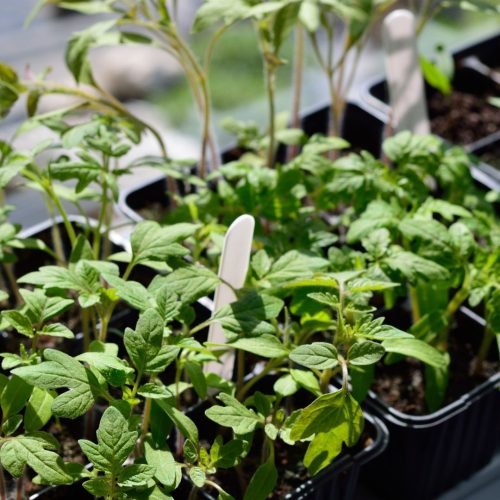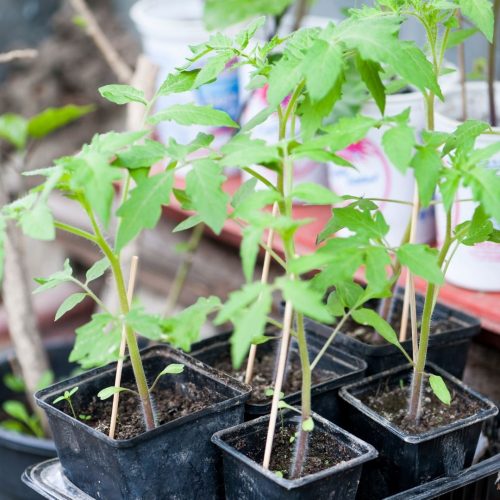| Membership | Price (+HST) |
|---|---|
| Single | $85/year |
| Single Plus | $120/year |
| Family | $130/year |
| Family Plus | $175/year |
| Contributing | $300/year |
| Supporting | $600/year |
| Sustaining | $1,000/year |
| Benefactor's Circle | $2,500/year |
| Director's Circle | $5,000/year |
| President's Circle | $10,000/year |
Hardening Off Isn’t Hard
By Jessica Veter, Volunteer, Royal Botanical Gardens.
Imagine a beginner gardener and her first windowsill of tomato seedlings. As they stretched in the mediocre light, she crossed off days until the May long weekend. When it arrived, she brought them out into the sun of the back deck… then cried out in horror eight hours later when they were all of them wilted, pale, and collapsed over the edges of their pots. A phone call to the gardener’s mother resulted in this piece of advice: “You need to harden them off.”
The gardener (who, at this point, did not feel like a gardener at all) had no idea what this was. It sounded difficult. Luckily for our hero, the term comes from making plants hardy, not from plants being difficult.
The climate inside our homes is constant. The temperature is steady, there are no harsh winds or storms, and the light, even in a bright window, is filtered. If you start your plants under artificial LED lights, as I do, the light source is steady and regular. In other words, it’s not at all like it is out-of-doors. Our gardener didn’t think of that when she moved her plants outside.
The key to successfully moving plants out is to take it slowly. This holds true for seedlings and for any houseplants you want out for the summer. Like toddlers, they need time to adjust.
To begin with, pick a mild day after all the danger of frost has passed. Select a sheltered spot out of the wind. Move your plants outside. Our gardener is perhaps overly cautious, but she seldom leaves them out that first day for more than 30–45 minutes. Put the plants out a little longer each day. If the sun is strong, add less time. If it’s weaker, add more. Gradually expose them to wind, too. Gentle rain is fine, but avoid heavy rain until the plants are nice and strong. As the plants become hardier, you can move from adding half an hour a day (for example), to an hour.


If you’re working away from home, you can harden off your plants by putting them in a sheltered spot and rigging some shade, so that they will be exposed to the sun for a while but then will be protected as the shade covers them. Alternatively, place them where they will be shaded by a tree. Move the shade (or the plants, if your shade is a tree) so the plants are exposed to a little more sun every day.
Things to keep in mind:
- Now that your plants are spending time outdoors, they will dry out more quickly.
- There is nothing tastier to squirrels and chipmunks than baby plants.
- Once your plants adjust, they will reward you with a lot of growth. You may need to move them to bigger pots before you can put them in the garden.
- A gentle feed isn’t a bad idea once the plants have settled into their hardening off.
Within a couple of weeks, your plants should be strong, happy, healthy, and ready to be planted directly into the garden or placed in their summer location.
More from the RBG Blog
Check out RBG’s blog for announcements, articles, and more from Canada’s largest botanical garden.
Want to be sure you hear first? Sign up for our weekly e-newsletter to hear about upcoming events, weekend activities, articles, and more!












